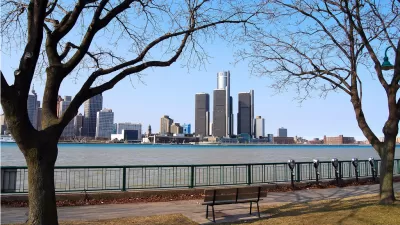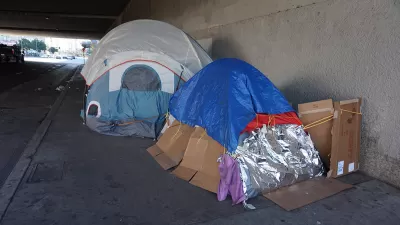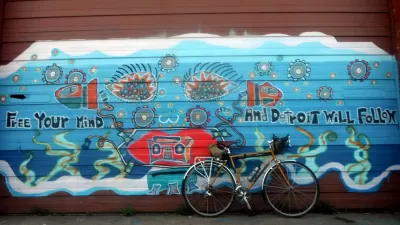Do the stylized pictures of crumbling edifices and the recent incorporation of a vacant home in an art show do a disservice to the residents—mostly poor and black—who still call Detroit home?

In an article for The Guardian, Brian Doucet and Drew Philip argue against the artistic portrayal of vacant homes and crumbling buildings in Detroit—imagery they describe as "ruin porn." Doucet and Philp cite a project by artist Ryan Mendoza that transported a vacant Detroit home to Rotterdam where it was included as part of the Rotterdam Art Fair. They argue that the fetishization of Detroit as a city in ruins is a simplistic one that ignores the people who still call the city home.
"Ruin porn” is based purely on aesthetics and is almost always devoid of people. Employing the mismatched spoils of history, ruin porn ignores and overwrites the voices of those who still call Detroit home. When its ruins are fetishised as art, these injustices are, at best, ignored, and, at worst, mimicked. They ignore the humanity of residents’ current struggles, while replicating the history that created them.
FULL STORY: In Detroit ‘ruin porn’ ignores the voices of those who still call the city home

Montreal Mall to Become 6,000 Housing Units
Place Versailles will be transformed into a mixed-use complex over the next 25 years.

Planetizen Federal Action Tracker
A weekly monitor of how Trump’s orders and actions are impacting planners and planning in America.

DARTSpace Platform Streamlines Dallas TOD Application Process
The Dallas transit agency hopes a shorter permitting timeline will boost transit-oriented development around rail stations.

Interactive Map Reveals America's “Shade Deserts”
Launched by UCLA and American Forests to combat heat-related deaths, the tool maps the shade infrastructure for over 360 U.S. cities.

Bicycles and Books — In Sacramento, Libraries Now Offer Both
Adult library card holders can check out e-bikes and e-trikes for up to one week.

Colorado Landfills Emit as Much Pollution as 1M Cars
Landfills are the third-largest source of methane pollution in Colorado, after agriculture and fossil fuel extraction.
Urban Design for Planners 1: Software Tools
This six-course series explores essential urban design concepts using open source software and equips planners with the tools they need to participate fully in the urban design process.
Planning for Universal Design
Learn the tools for implementing Universal Design in planning regulations.
City of Mt Shasta
City of Camden Redevelopment Agency
City of Astoria
Transportation Research & Education Center (TREC) at Portland State University
US High Speed Rail Association
City of Camden Redevelopment Agency
Municipality of Princeton (NJ)




























